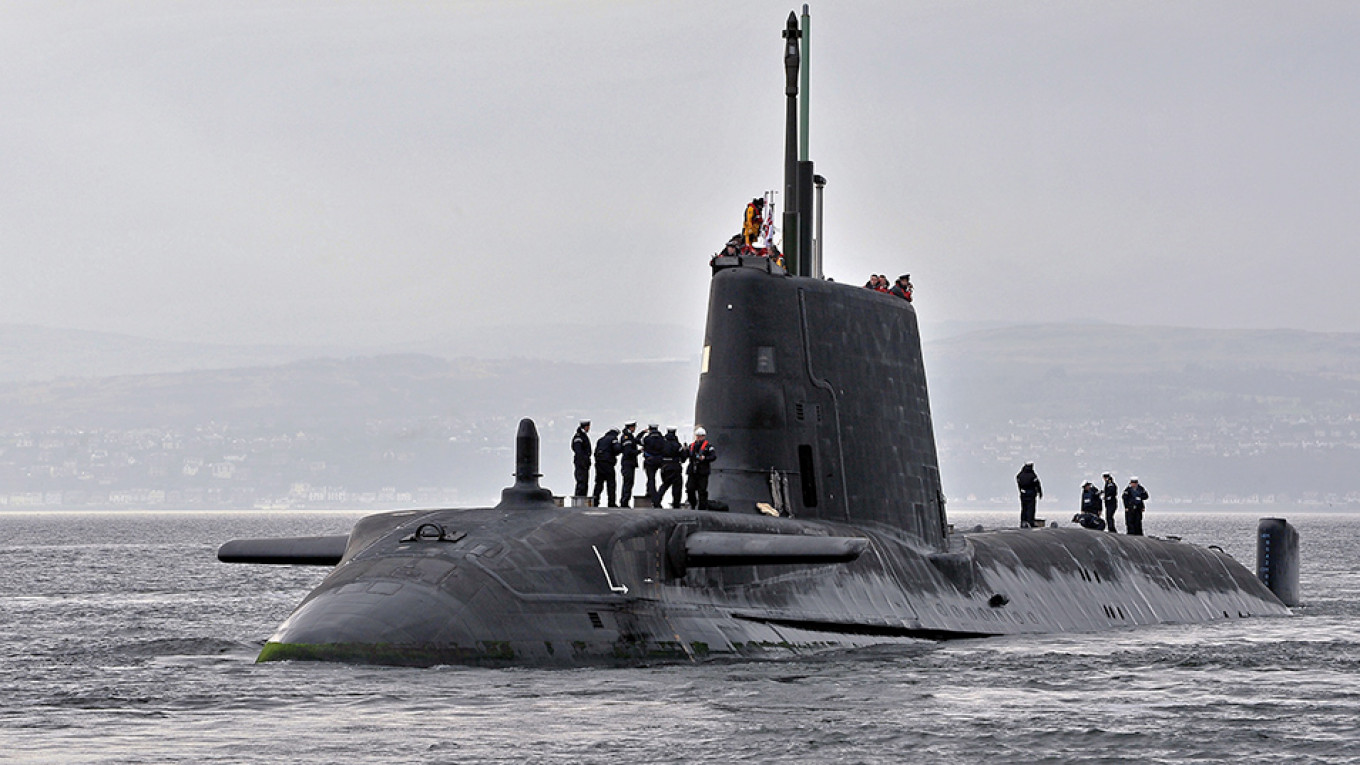Britain has banned the export of submarines to Russia over what it says are advances that pose a national security risk, including the alleged ability to cut undersea cables which carry most global internet communications.
Britain and the U.S. have warned that the Russian Navy could disrupt over $10 trillion in daily transactions by attacking the cables crossing the world’s seas and oceans. Western military experts have suggested that a secret nuclear-powered submarine hit by a fatal fire in July had the ability to probe and possibly even sever undersea communications cables.
The British government’s trade agency has announced “national control” measures prohibiting the export of submarines and related equipment, software and technology to Russia.
“This additional control is a consequence of Russia developing certain capabilities — including the ability to track, access and disrupt undersea communication cables,” said the International Trade Department’s export-control unit.
“These activities represent a risk to our national security and the new control is intended to mitigate this risk,” the agency said in a statement Wednesday.
Russia’s Defense Ministry has not yet commented on the latest ban. In 2015, A Defense Ministry-owned news channel had said that Russia can “both cut the special communication cables on the ocean floor and scan the signals they carry” in the event of active hostilities.
A Message from The Moscow Times:
Dear readers,
We are facing unprecedented challenges. Russia's Prosecutor General's Office has designated The Moscow Times as an "undesirable" organization, criminalizing our work and putting our staff at risk of prosecution. This follows our earlier unjust labeling as a "foreign agent."
These actions are direct attempts to silence independent journalism in Russia. The authorities claim our work "discredits the decisions of the Russian leadership." We see things differently: we strive to provide accurate, unbiased reporting on Russia.
We, the journalists of The Moscow Times, refuse to be silenced. But to continue our work, we need your help.
Your support, no matter how small, makes a world of difference. If you can, please support us monthly starting from just $2. It's quick to set up, and every contribution makes a significant impact.
By supporting The Moscow Times, you're defending open, independent journalism in the face of repression. Thank you for standing with us.
Remind me later.






